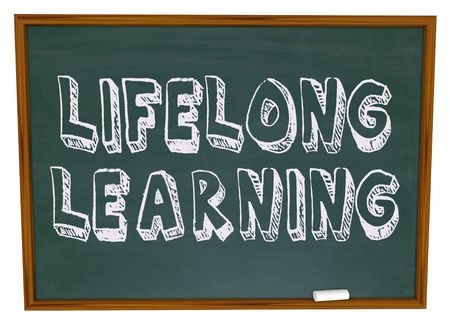I’ve never been a big fan of resolutions, but I do think this is a good time of year to take stock and consider whether its worth approaching things a little differently in the coming year. Certainly, for anyone working in the arena of continuing education, and professional development, it’s well worth taking a look at our own lifelong learning habits and practices.
First and foremost, we shouldn’t leave our own learning to chance. As my friend Dorie Clark has suggested over on the Harvard Business Review Blog, if you are a serious learner, you really need to Plan Your Professional Development for the Year.
Actively ask, what are my learning goals for the year and – crucially – why?
And then, of course, what will I do to support them?
This may mean attending certain events (like, for example, the Leading Learning Symposium). If so, get them on your calendar, and make time in advance to plan for getting as much value as possible out of them. (Along those lines, you might want to check out 10 Conference Learning Tips – and maybe even share it with your own conference goers.)
It may also mean taking a look at the various communities you participate in, or could participate in online and being much more intentional about how you use them. What questions would it make sense for you to ask in an a community? Just as importantly, what could you potentially share with the community that would help others and, in doing so, help you to enhance your own learning?
And what about curating content and connections in a way that supports your learning? To begin with, who are your curators – i.e., the people and organizations that serve as effective filters for the knowledge most relevant to you? And how actively do you engage in curation yourself, whether for your own needs or – even better – to share with others?
Curation doesn’t have to be all digital, of course. You may want to start a folder of articles, ideas, etc. that you clip from print publications. And, for that matter, what books do you plan to read – or re-read – this year? You may even want to have a look at our Emphatically Recommended Readings™ for the Leading Learning Symposium:
- Make It Stick: The Science of Effective Learning
- “Blue Ocean Strategy”
- Influence: The Psychology of Persuasion
- “10 Trends for Workplace Learning (from the Top 100 Tools for Learning 2015)”
And are you taking time, with some regularity, to review and reflect on what you learn through the above activities? Reflection at the end of the year can be particularly powerful, but it is also important to do throughout the year. As an extension of reflection, I’m a fan of writing or speaking publicly – e.g., via blog posts, newsletter articles, podcasts, conference sessions – about areas in which we are trying to advance our learning. Having to synthesize and explain to other – aka teach – is one of the most powerful approaches to reinforcing learning.
Finally, are you taking care of yourself physically in a way that is likely to support effective learning? We are learning more and more about how critical sleep, exercise, and diet are to maintaining a healthy brain and supporting our capacity to remember and continue learning. I won’t try to cover all of the details here, but at a minimum, most of us need 7 to 8 hours of sleep a night, aerobic exercise at least a few times a week, and moderation in pretty much all aspects of our diet (and eat your vegetables, for goodness sake!).


 Grand Design and Boutique Learning
Grand Design and Boutique Learning
Leave a Reply